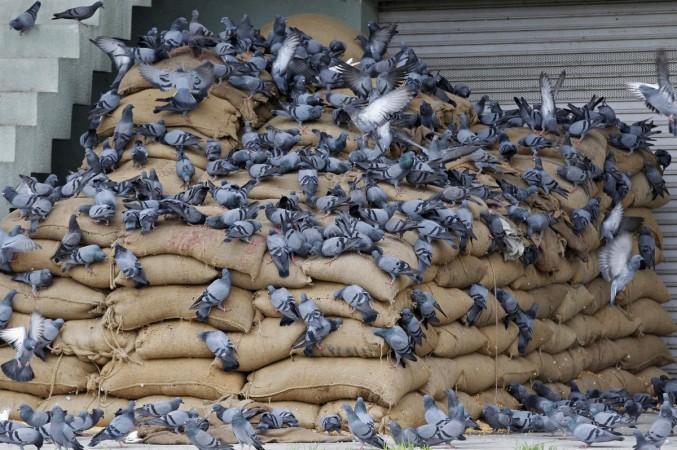
Pigeons are often detested for dirtying the streets and in Britain, they are even called "rats with wings". This loathing might change as scientists now believe that urban pigeons can, in fact, help prevent the spread of diseases and toxins by acting as "biomonitors."
Researchers from the University of California say that since the pigeons consume the same water, soil and air as the humans do, it is possible to get valuable information on the spread of toxins that damage human health, just by keeping a track on a group of pigeons, reports the Mail Online.
Pigeons are a perfect tool to monitor dangerous pollutants in the environment as the birds live in the same areas as city dwellers and are exposed to the same contaminants, according to Rebecca Calisi-Rodriguez, associate professor, University of California.
"Pigeons have existed for ages in close proximity to us, eating the same food, drinking and being exposed to the same water sources, soil, air, pollution," said Calisi-Rodriguez.
She further states that these birds have a small home range and spend their lives within few neighborhood blocks, as a result of which, they offer the opportunity "to not only find toxin hot spots in our environment but to understand how these toxins affect biology."
In a recent study, the team tracked pigeons to determine if they can highlight areas with high lead pollution. Calisi-Rodriguez studied the blood levels of pigeons and children living in New York from 2010 to 2015. She found that both the birds and humans living in the same neighborhood had the similar pattern of lead content in their blood.
The team even tested pigeons for other toxic content such as pesticides, fire retardants, BPA, and other heavy metals. The researchers are now monitoring the genetic structure of the birds to check how stress affects DNA.
"We share a lot of the same evolutionary history, and our bodies have many similarities in terms of tissue form and function," reveals Calisi-Rodriguez. "For example, like humans, pigeons lactate. They produce crop milk in their crop sacs to feed their chicks when they first hatch," she adds.
Rodriguez says It is time that pigeons are considered a feasible option for monitoring environmental hazards and how they affect the humankind.
The research was presented at the AAAS annual meeting in Austin, Texas.













